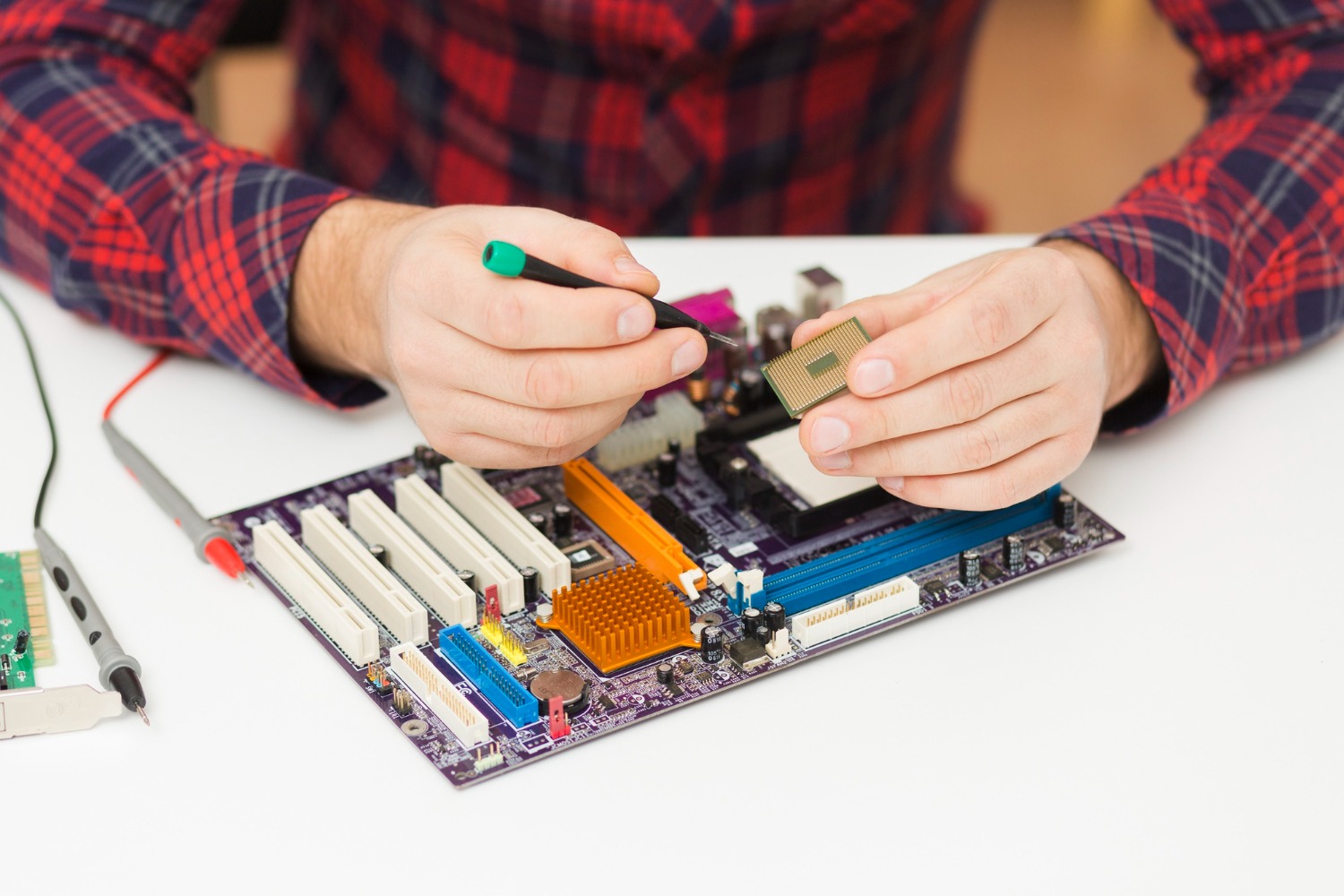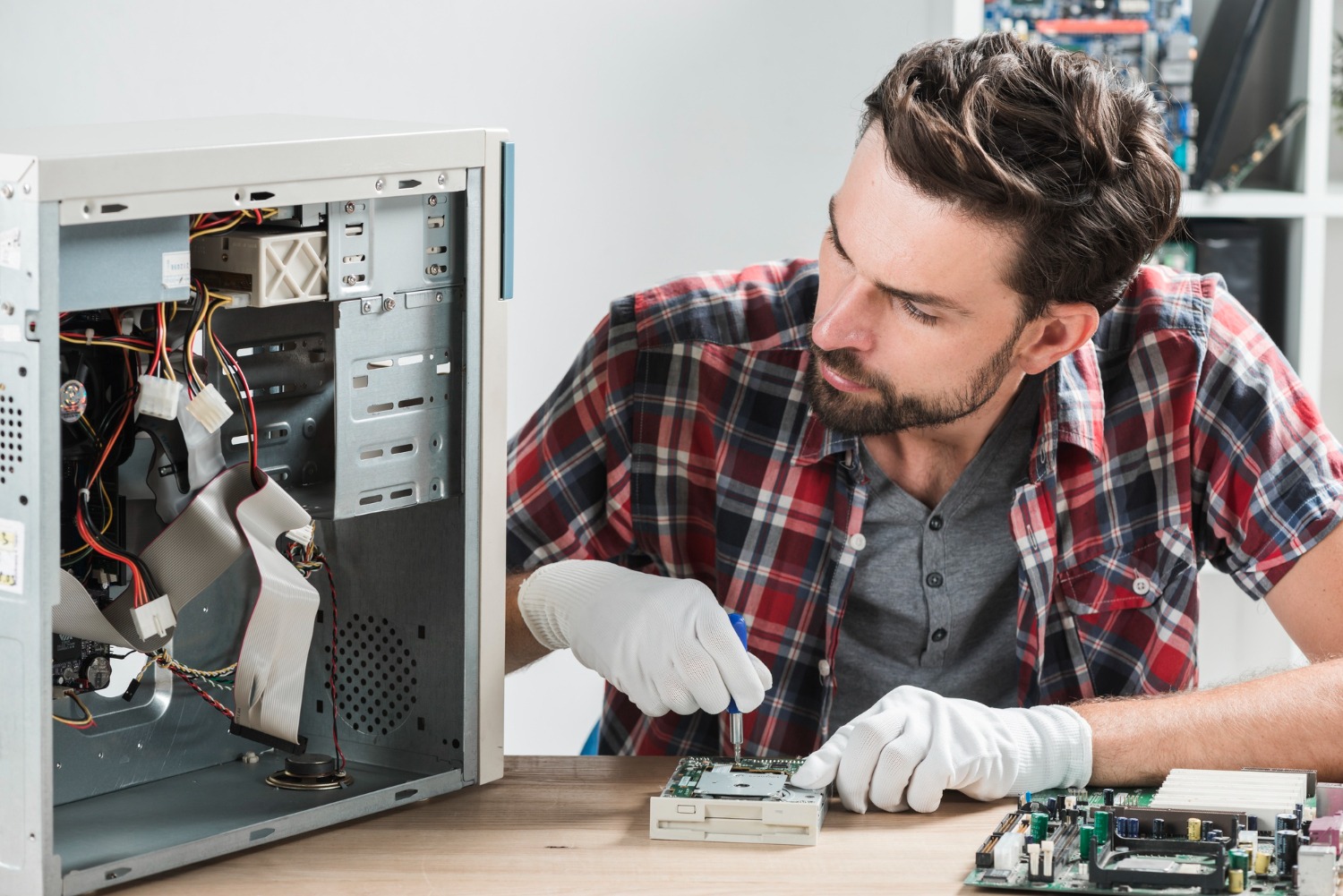Is It Cheaper to Build A PC 2025: A Guide For The Gamer, Office Worker, or DIY-or on a Budget
Building your own PC is like putting together some IKEA furniture: both can be an extremely satisfying or utterly catastrophic experience, minus the screws but a whole lot riddled with headaches. We’ve all heard the question circulating time and again: is there a distinct price difference between building a PC and purchasing a pre-built one? Spoiler alert: The answer is more complex than you think. This answer varies depending on what you want, your expertise, and how much of the tech world you’re willing to explore.
This article aims to analyze the differences in building and buying a PC from the cost, performance, and the insanity levels of a DIY project.
What’s the Big Deal with Building a PC?
First, allow us to highlight why this problem needs addressing. If you happen to be on the market for a new computer, chances are you’re familiar with the relentless debate. But is it cheaper to buy a pre-built PC instead of building one yourself?
Response in a nutshell: It depends.
Before you come to a conclusion, let us breakdown the reasons why.
Why Build a PC? The Pros
From a personal standpoint, building a PC from scratch is full of different achievements. Let’s not forget the great feeling that comes from being able to brag about it with your friends. We also shouldn’t ignore the financial and efficiency benefits that are out there.
1. Customization and Performance
Every single computer part is crucial when building a PC. That’s why purchasing a singular personal computer component is so revolutionary. GPUs and CPUs are significantly more powerful and cheaper than they were a decade ago. If you enjoy gaming, then having access to a great GPU is a must. For video editing, simulations or anything of that nature. You would want to have a fast CPU. It goes without saying that having the ability to tailor match your hardware to the personalized requirements boosts your overall savings.
2. Better Value for the Price
A great example of this would be paying for a meal. Building your own system is no different than ordering a pizza that only has all of your favorite toppings. If paying for self-built PC systems is great, pre-built PC systems do have their downsides. You end up paying for features and parts that go to waste which lowers the overall cost efficiency.
3. No Additional Software Packages
It’s no secret that pre-made PC’s often come with quite a bit of bloatware, or programs that are pre-installed and render you unable to remove them. They take up precious space and availability of resources that you will want later on. With a custom-built PC, you can start with a clean slate and install only the software you want.
4. Gaining New Knowledge
Building a PC isn’t only about saving money but also acquiring new knowledge. You will have a better understanding of how computers actually work and feel self-sufficient when it comes to upgrading your system in the future. And let’s be honest, who would not want to say “I built this thing with my own hands.”
Why Purchase a Pre-Built PC: The Pros
If building a PC step-by-step sounds too complicated for you, then I have good news: pre-built systems have their pros too. Let’s take a look as to why embarking on a customizable PC journey might not be ideal for everyone:
1. Convenience and Time-Saving
If your pre-existing computer broke down and you require a new one yesterday, your best choice is a plug-and-play pre-built system. All of the assembly, testing, and installation has been done for you, you just have to plug it in and start working, or gaming.
2. Warranty and Support
Customer support and warranty is standard practice for most pre-built systems. If something malfuctions, simply reach out to the manufacturer and they will either repair or replace the relevant component. That’s one of the factors to consider in risk of building a PC—having to self-repair a DIY system can become a problem if you do not possess the required knowledge.
3. Bulk Discounts
The average retail price for a prebuilt computer is significantly lower than the customized versions, and that is partly due to bulk discounts. When manufacturers build individual computer systems they get to take advantage of economies of scalability, which with additional boosts from offered discounts aids in lowering the overall cost. Prebuilt systems are also offered with special discounts or bundles helping customers get hands on high performance low cost systems.
4. Quality Control
When it comes to DIY PCs, not every single component can be individually tested like they can be at a professional manufacturing facility which specializes in prebuilt systems. The chances of receiving a faulty computer part is less with prebuilt systems as they are put through tougher quality checks.

Is It Less Expensive to Build a PC?
After weighing the pros and cons, one question remains: is it more economical to build a PC or purchase a pre-built one?
This is where things get complicated. If you possess the experience and know how to find great deals on parts, building your own PC will definitely save you money. On the flip side, if you’re new to the process and buy wrongly priced or incompatible components, building will cost you more upfront.
Let’s break it down:
DIY Build Costs
Budget Build: If you’re only looking to complete tasks like web surfing and document editing, building a PC will cost you between $400-$600 depending on the components chosen.
Mid-Range Build: Good mid range builds for gaming or content creation will set you back by $800-$1,200.
High-End Build: For those wanting to spend on a premium system for 4K gaming or video editing, having the specs you desire will set you back anywhere from $1,500 to $3,000 or more.
Costs of Pre-built Machines
Pre-built Machines are available from $300 for entry-level models to well over $5000 for workstations or gaming rigs. Usually, a gaming PC is around $1000, though many high-quality pre-builts can run north of $2000.
As noted, building the components is likely the least expensive route, especially if you already have tools or expertise. That said, for those who want a quick and effortless option, or lack familiarity with the required components, a pre-built offers the best value.
Other Factors When Choosing to Buy or Build
Cost is typically the most important factor. However, there are some other relevant considerations when pondering whether building a PC from scratch is more economical than purchasing a pre-built one.
Time vs. Skill
While building a PC does present a fun challenge, not everyone will see it that way. If you don’t consider yourself tech savvy or can’t spend a lot of time troubleshooting, running all of the components together might be more frustrating than completing the machine itself. Factor in a valuable time and it makes sense to opt for a pre-built.
Prices of Components
Prices for individual components tend to vary because of pandemics, geopolitical struggles, or other factors affecting their supply. If you have ever built a PC, you know the struggle – some of your favorite parts may suddenly become out of stock or way more expensive than before. In those instances, it may make more sense to go with pre-built systems, as the manufacturers have much more purchasing power.
Other Potential Additions an Upgraded System Might Have
For those with a tinkerer’s mindset, building a PC from scratch will likely save money in the long run. Increased graphics card, better RAM, or most other components can be added separately, rather than having to buy an entirely new system. On the other hand, in a pre-built PC, proprietary parts and warranty can make upgrading much more complex.
Commonly Posed Questions
Q1: Is it more economical to build a gaming PC or buy one?
Putting together a gaming PC from scratch yourself tends to be the more economically viable option, assuming you are dedicated enough to do the necessary research and piece everything together. With a custom build, you can also prioritize functionality over appearance, which greatly helps in cutting costs.
Q2: How much money can I save by building a PC?
By building your own PC, you can save between 10% to 30% as compared to buying a pre-built system. The savings differ depending on the quality of the components you select and if you are able to get discounts or sales.
Q3: What are the hidden costs of building a PC?
Tools (if you do not have them), shipping fees for parts, and possible repair costs due to accidents are some hidden costs. You may also require additional peripherals like a monitor or a keyboard, which increases the price even further.
Q4: How long does it take to build a PC?
A first-time builder takes around 2-4 hours to assemble a PC, whereas for an experienced builder, it can take as little as an hour.
Q5: Should I build my own PC or get a pre-built one?
If you have experience with DIY projects, then a customized build is perfect for you. But if you prefer the added convenience of a warranty and after-sale service, buying a pre-built PC is the best option.
Conclusion
Is building a computer cheaper? Like most things in life, the answer varry baseda on your preferences, abilities, and finances. And while constructing a PC will almost always be less expensive, it may not be the fastest or simplest route. Evaluate your priorities and whether the savings are worth the work.
Ultimately, it is your computer so build it however you see fit. Just be sure to bring a little patience along – as well as a spare hard drive.
